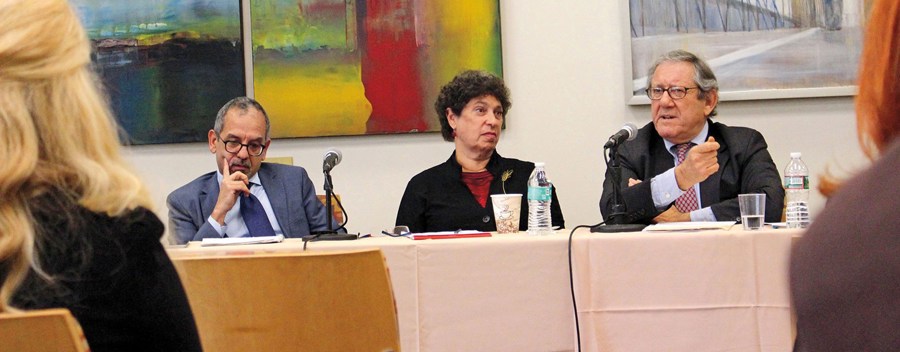
In October, faculty discussed the previous and upcoming Supreme Court terms
In October, Brooklyn Law School hosted a panel discussion with members of its constitutional law faculty who previewed the current term of the United States Supreme Court. They shared their thoughts on the cases that the Court will consider this term as well as their insights about the future of the Court. The panel was part of the Law School’s annual celebration of Constitution Day.
Introducing the panel, Dean Allard noted that the conversation was happening against the backdrop of a tumultuous election that had raised the question of what we mean by the phrase, “we the people.”
Professor Joel Gora delivered what he called a “eulogy” for the Roberts Court, which he called “the most First Amendment-friendly Court in history.” He lamented the pushback the Court has received for its decision in the Citizens United case, calling that decision “heroic” for its protection of free speech.
Vice Dean William Araiza spoke about the case Lee v. Tam, which questions whether the U.S. Patent Office can refuse to register a trademark, in this case for the name of a rock band, the Slants, because it is thought to be disparaging. Araiza showed that the case is about much more than patent law, as it calls into question what constitutes commercial speech, what is government speech, and where the line to censorship is crossed.
“Query whether the government can decide what is disparaging or not,” he said.
Professor Susan Herman, who is president of the American Civil Liberties Union, focused on the Turkmen cases before the Court, which concern requests for redress for inhumane treatment of people detained for immigration violations in the wake of the attacks of Sept. 11, 2001.
“They were treated as if they were terrorists,” Herman said. “Not one has gotten a hearing on the merits.” Instead, courts have declined to hear the cases for procedural reasons.
There was some healthy debate among the panelists, but they all agreed that Justice Ruth Bader Ginsburg had made a mistake when, earlier in 2016, she publicly disparaged then candidate Donald Trump.